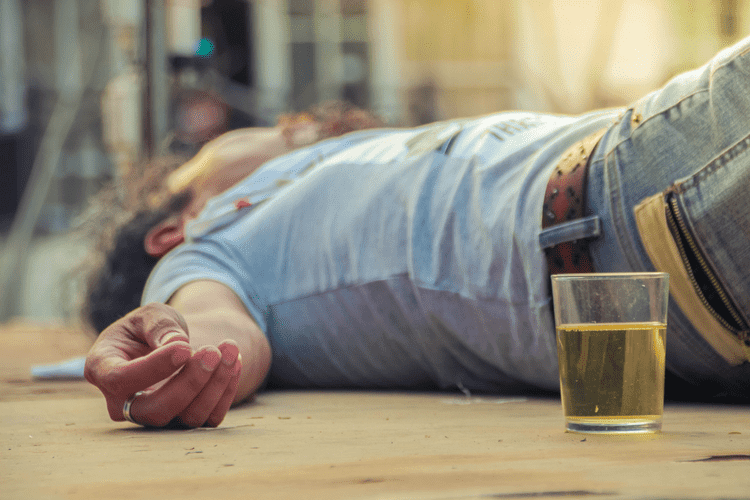Content
Older individuals are more vulnerable to the short- and long-term effects of alcohol use on their brains. In addition, people who drink too much alcohol are often deficient in vitamin B-1, or thiamine. Unfortunately, as the markets rebounded, excessive drinking behaviors remain the same. And now more than 29.6 million Americans are putting their health at risk due to overconsumption of alcohol. Ark Behavioral Health offers 100% confidential substance abuse assessment and treatment placement tailored to your individual needs. To find a treatment facility for alcohol abuse that understands your specific needs, please contact us today.
As the dose increases,
so does the magnitude of the memory impairments. Under certain circumstances,
alcohol can disrupt or completely block the ability to form memories for events
that transpire while a person is intoxicated, a type of impairment known as
a blackout. This article reviews what is currently known regarding the specific
features of acute alcohol–induced memory dysfunction, particularly alcohol–induced
blackouts, and the pharmacological mechanisms underlying them. The short answer is yes, alcohol and memory loss are correlated in a way that alcohol abuse can lead to memory loss.
Search Alzheimer’s Association
Chronic alcohol abuse has many negative effects on the body overall, but it can impair memory tremendously. Whether long or short term memory, chronically using excessive amounts of alcohol can cause loss of memory, and prevent new ones from forming. While the short-term effects tend to reverse as the alcohol leaves the system, the longer term effects of alcoholism are far more prevalent. The first hurdle concerned
scientists’ understanding of the functional neuroanatomy of memory. In
the 1950s, following observations of an amnesic patient known as H.M., it became
clear that different brain regions are involved in the formation, storage, and
retrieval of different types of memory.
Why do alcoholics lose their memory?
Alcohol-related blackouts are gaps in a person's memory for events that occurred while they were intoxicated. These gaps happen when a person drinks enough alcohol to temporarily block the transfer of memories from short-term to long-term storage—known as memory consolidation—in a brain area called the hippocampus.
Large quantities
of alcohol, particularly if consumed rapidly, can produce a blackout, an interval
of time for which the intoxicated person cannot recall key details of events,
or even entire events. En bloc blackouts are stretches of time for which the
person has no memory whatsoever. Fragmentary blackouts are episodes for which
the drinker’s memory is spotty, with “islands” of memory providing
some insight into what transpired, and for which more recall usually is possible
if the drinker is cued by others. Blackouts are much more common among social
drinkers than previously assumed and should be viewed as a potential consequence
of acute intoxication regardless of age or whether one is clinically dependent
upon alcohol.
How Can Alcohol Cause Memory Loss Over The Long-Term?
Moreover, the risk of memory cognitive impairment increased with the amount of alcohol use. Short-term effects of memory loss are most likely to occur when you’re intoxicated. You may have trouble remembering details of what you did while drinking. This can happen to social drinkers and people with alcohol addictions.

Some cells
tend to discharge electrical signals that result in one cell communicating with
other cells (i.e., action potentials) when the rodent is in a distinct location
in its environment. Collectively, the cells that are
active in that particular environment create a spatial, or contextual map that
serves as a framework for event memories created in that environment. In classic studies of hospitalized
alcoholics by Goodwin and colleagues (1969a,b), 36 out of the 100 patients
interviewed indicated that they had never experienced a blackout. In some ways,
the patients who did not experience blackouts are as interesting as the patients
who did. What was it about these 36 patients that kept them from blacking out,
despite the fact that their alcoholism was so severe that it required hospitalization?
How Does Alcohol Use Lead to Short-Term Memory Loss?
Abstinence also can help reverse negative effects on thinking skills, including problem solving, memory, and attention. By some accounts, popular culture makes light of the memory problems that can result from alcohol consumption. Songs such as Waking Up in Vegas by Katy Perry[66] and Last Name by Carrie Underwood[67] also depict characters waking up and not remembering the night before due to alcohol consumption. With new FDA-approved treatments to slow Alzheimer’s disease in the early stages, we’re making real progress for families facing the disease today. Give today to help further advance dementia research, and provide care and support to families who need it. For people who drink daily and heavily, there isn’t always a safe or moderate amount of alcohol consumed.

Long-term use of alcohol in excessive amounts can cause brain damage by directly or indirectly affecting other organ systems. Brain damage from chronic alcohol use can result in an inability to form new memories and an impaired ability to retrieve existing memories. Doctors have discovered several ways in which alcohol affects the brain and memory. Binge drinkers and those with alcohol use disorder (AUD) may experience short and long-term memory loss. Long-term heavy alcohol consumption can also lead to thiamine B1 deficiency and Korsakoff’s Syndrome, a memory disorder affecting short-term memory.
A perceptual maze test sensitive to brain damage
They may not remember how much they have consumed, so they continue drinking excessively. People who are drunk or blacked out are more likely to try illicit drugs than they would be sober. In sober house a 2004 study published in the American Journal of Alcohol and Drug Abuse, only one out of 50 college students who had experienced a blackout said they blacked out after drinking beer alone.
Is alcohol dementia permanent?
Unlike Alzheimer's disease or vascular dementia, alcohol-related 'dementia' is not certain to get worse over time. With the right treatment and support, there is often a good chance that it will stop getting worse or improve.
The men were asked to consume roughly 16 to 18 ounces
of 86–proof bourbon in approximately 4 hours. Beginning 1 hour after subjects
began drinking, memory was tested by presenting subjects with several different
stimuli, including a series of children’s toys and scenes from erotic
films. Subjects were asked to recall details regarding these stimuli 2 minutes,
30 minutes, and 24 hours after the stimuli were shown. Half of the subjects
reported no recall for the stimuli or their presentation 30 minutes and 24 hours
after the events, though most seemed to recall the stimuli 2 minutes after presentation.
Getting Help for Chronic Alcohol Use
What he has found to be most rewarding about working in the addictions treatment field is being able to help suffering addicts and alcoholics to realize their fullest potential. He earned a Bachelor’s degree at Lincoln University of Pennsylvania while pursuing his CAC-AD. With strong ties to Victory Christian Church and the 12-step community, Federico shares an amazing personal story of redemption and long-term recovery. With over 32 years in the arena of addiction and sobriety, he uses his vast experience to provide a unique approach to mentorship and guiding our clients toward a supportive lifestyle of recovery.
- The first hurdle concerned
scientists’ understanding of the functional neuroanatomy of memory. - Alcohol consumption can make symptoms worse and cause further damage to the brain.
- The inability to form new memories while intoxicated is referred to as an alcohol-induced blackout, which involves temporary memory loss.
- This can happen to social drinkers and people with alcohol addictions.
- They may also eventually develop something called Wernicke-Korsakoff syndrome.